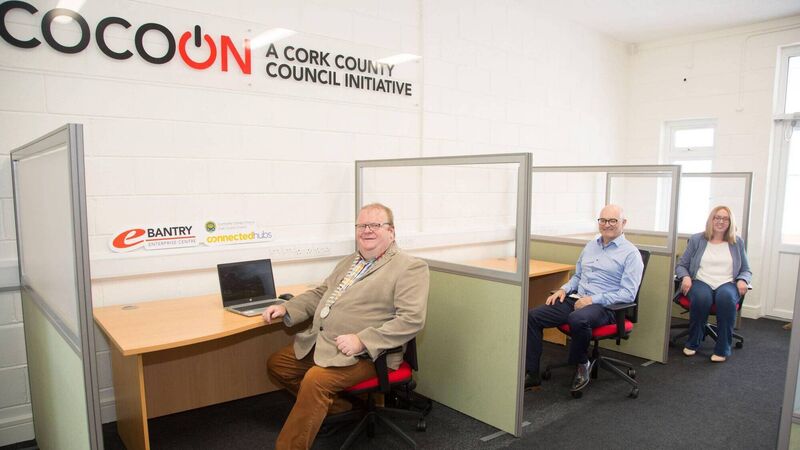Donal Hickey: How far from some rural towns do you have to travel for a carton of milk?

Mayor of the County of Cork, Cllr Danny Collins visits Bantry E-Centre following the completion of upgrade works at the remote working facility which were funded by Cork County Council and the Connected Hubs Grant Scheme. Pictured here with Paul Sutton and Bernie McCarthy, Cork County Council. Photo: Adrian Cronin
The large-scale closure of country pubs (including a few personal favourites) is often cited as a mark of rural decline. Less attention, however, is given to the disappearance of shops from small towns and villages.
City people travelling around Ireland during the tourist season discover this when they might have to go for many kilometres before they can buy something as simple as an ice cream.








![<p> The International Union for the Conservation of Nature says that “an ecosystem is collapsed when it is virtually certain that its defining biotic [living] or abiotic [non-living] features are lost from all occurrences, and the characteristic native biota are no longer sustained”.</p> <p> The International Union for the Conservation of Nature says that “an ecosystem is collapsed when it is virtually certain that its defining biotic [living] or abiotic [non-living] features are lost from all occurrences, and the characteristic native biota are no longer sustained”.</p>](/cms_media/module_img/9930/4965053_12_augmentedSearch_iStock-1405109268.jpg)